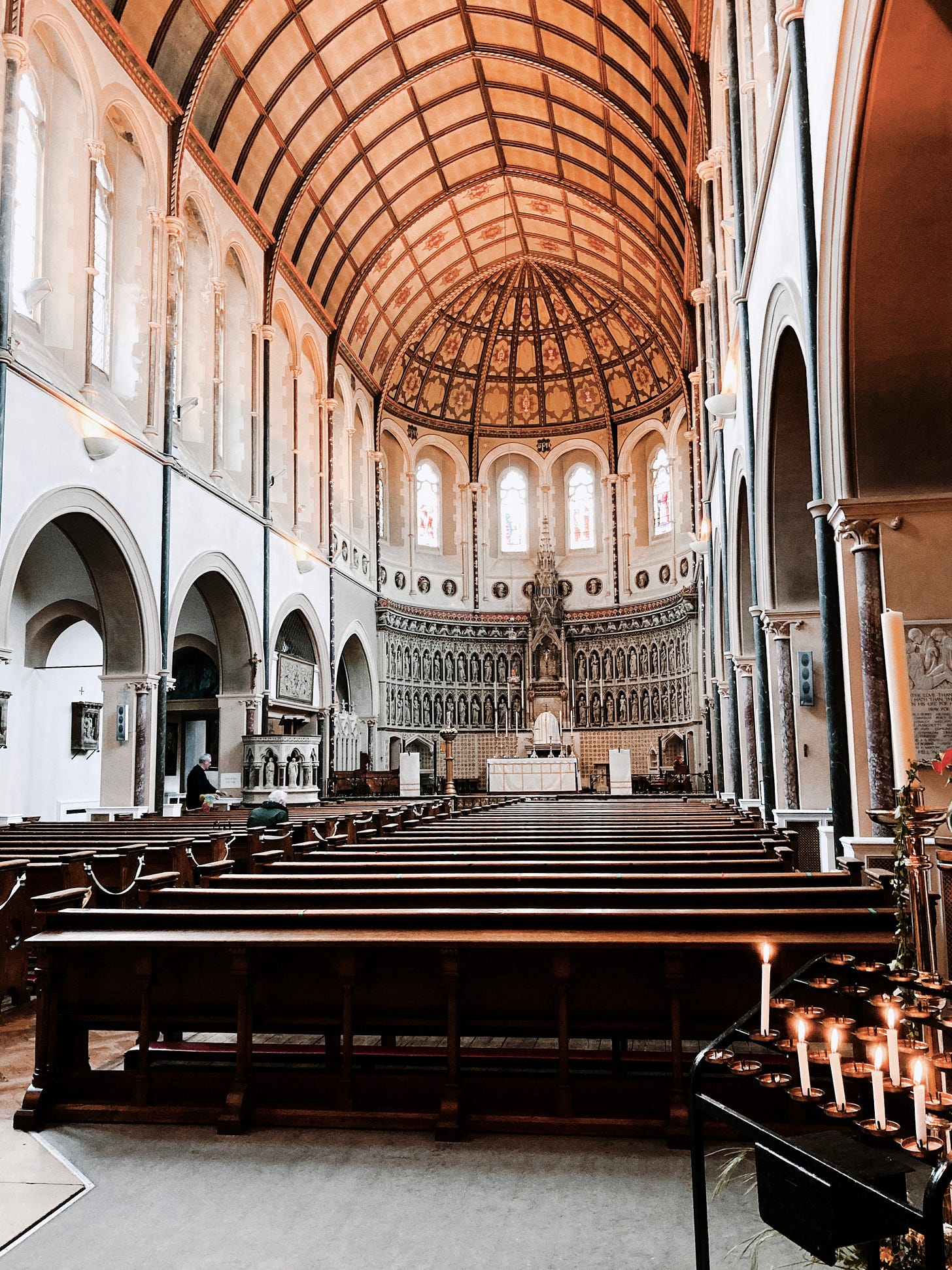Hello to new subscribers — thanks for reading. This month I’ve written for the New Statesman on early Christianity’s challenge to the late antique family & for the Tablet on my conversion to Catholicism. Have a read if you can navigate around the paywalls.
Listening to Lana’s new album, you’re confronted with the sudden intrusion of a preacher. It’s a recording of a Judah Smith sermon, with Lana and her friends in the background saying yeah, giggling, repeating some lines: desire for what you have, rhino designer. That’s cool, she whispers. I’ve never listened to American megachurch preachers before, but it’s a beautiful delivery, the kind of crazy hysterical pacing interrupted by awe-struck reverence; there’s real rhetorical skill. I get why people go back for this kind of thing, the authoritative teaching, the pronouncement of a good life, the possibility of something better if you follow this advice, turn your will over to God. Help me, God, I wanna be a man in love, not a man in lust, the preacher says.
So, as He works deep in your heart / As you call out to Him and say / I'm here, doin' it, man / Help me want what I got / Help me love what's in front of me / Help me want more of my wife and more of my friends / And help me serve the city I live in and not wish it away and hope I can move.
But you've gotta do that. You’ve gotta call out. You’ve gotta pray.
In Holy Week, I wrote for the Tablet about becoming a Catholic. Conversion narratives are difficult because there are so many stories you can tell, so many elements swirling around the central thing, which is unsayable, miraculous grace. God worked on my heart until I came to believe—and that change isn’t something you can really write about. Once it happens you can’t go back.
The real challenge of conversion, for me, was working out how to negotiate my existing values—my previous understanding of the world—in light of this gift of faith. It’s very possible, at this stage, to reject faith; not to turn back the process, but to live in an unhappy limbo, denying yourself full communion with the Church and participation in the sacraments. I stayed there for a while and it was very painful and lonely and dark. I spent the Triduum last year at a Catholic church in Carmarthen feeling very alone, knowing I had to become a Catholic but unable to see my way through all the intellectual brambles and the conflicts that my attachment to self-will had put in my way.
I really loved that Catholic priests used the homily to tell their congregations how to live. They dispensed real advice: develop a daily devotional life, go to Mass, go to confession, avoid sin and occasions of sin, pray the rosary and novenas, perform the works of mercy, ask for the intercession of the saints. My diocese recommends six holy habits, including Eucharistic adoration, keeping Fridays as a day of penance through fasting and service of the poor, spending at least five minutes a day in prayer, keeping Sunday as a holy day, joining a small group for fellowship and prayer. I’d never heard an Anglican priest use the pulpit to tell me how to live. But here, priests claimed authority to correct, to genuinely teach, to offer a moral programme for life.
I remembered the confessional scene in season two of Fleabag, where the titular character confesses her deepest desire:
I just think I want someone to tell me how to live my life, Father, because so far, I think I’ve been getting it wrong. And I know that’s why people want someone like you in their lives, because you just tell them how to do it.
This is a prayer—a moment of rare vulnerability where Fleabag is able to let go of all her mechanisms of control, the flailing attempts of independent will to figure out how to get through a life, and ask—tell me how to do it. A willingness for something greater than herself to enter into her life and guide her. Of course, the priest ruins it, in a massive dereliction of duty, guided by lust rather than love.

